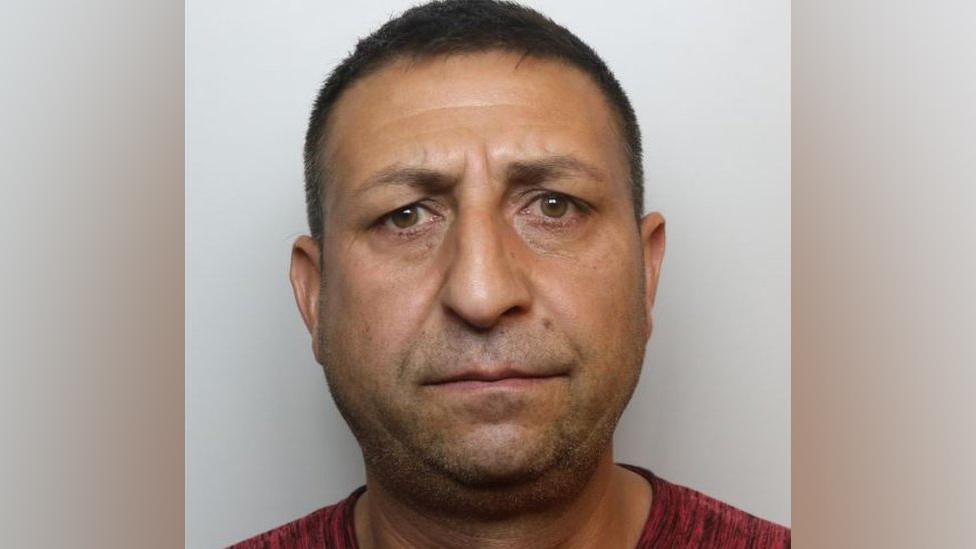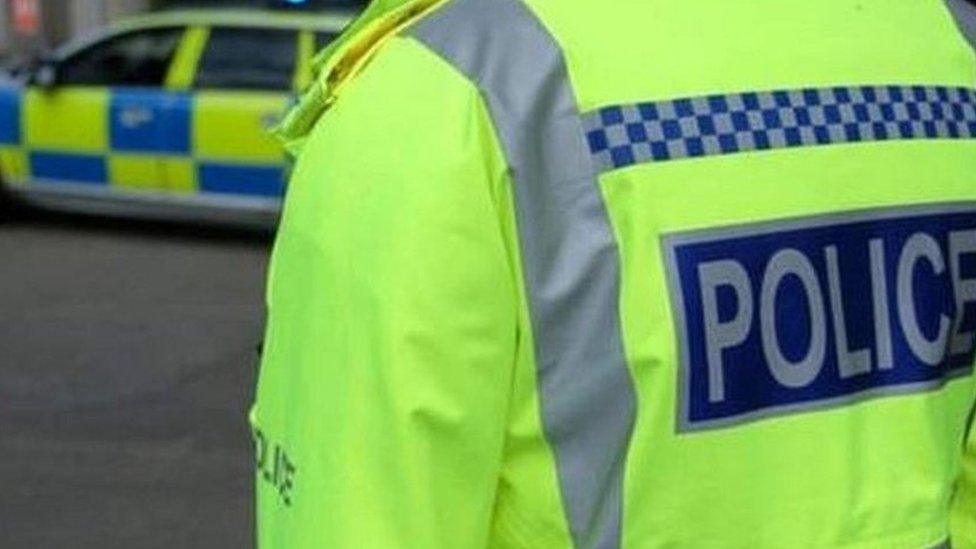Crime boss who trafficked women to Swindon for brothels jailed
- Published

Gigi Ciobanica, 46, of Grasmere Road, Birmingham was the crime group's "boss"
A crime boss who trafficked women from Romania to work in brothels has been jailed for eight years.
The Wiltshire Police investigation found women were used as sex workers in the Swindon area, with the money then laundered.
Gigi Ciobanica, 46, of Grasmere Road, Birmingham organised the transport, housing and activities of the women.
The police started investigating in 2018 and wanted to find those at the "top of the network."
The Wiltshire Police Serious and Organised Crime Unit (SOCU) involved the National Crime Agency, which helped get overseas suspects arrested and extradited.
The police investigation discovered women would be collected from Luton Airport or transported on ferries from France.
They would then be put to work in poor conditions with customers throughout the day and night.
"The exploited women were not in control of when they worked and those at the top took a heavy slice of any profit which was made," said Det Sgt Richard Nelsen.
"Ciobanica would funnel the money back to Romania to construct property in his name, whilst evading taxation and stealing from those he exploited," he added.

Wiltshire Police would like help from the public to prevent trafficking
Ciobianca was sentenced on 2 February at Winchester Crown Court to five years in prison for engaging in human trafficking and three years for money laundering.
Once released, he will be subject to a Slavery Trafficking Prevention Order for ten years.
Priyantha Yakdehige, 54, of no fixed abode, provided the addresses for the brothels by renting them to the crime group.
He received a suspended sentence for two years for engaging in human trafficking and a suspended two month sentence for money laundering, alongside 200 hours of unpaid community work.
Cristina Olaru, 31, of Commercial Road, Swindon, did not appear for sentencing and there is a warrant out for her arrest.
She was found guilty of controlling prostitution for gain and money laundering.
The investigation revealed Olaru was Ciobanica's partner at the time and controlled the listings for the sex workers, managed the finances and arranged where the women were in the houses.
Det Sgt Nelsen said "Modern Slavery is within our communities and is not something any of us can be complacent about in challenging.
"The police cannot tackle this problem on our own," he added.

Follow BBC West on Facebook, external, X, external and Instagram, external. Send your story ideas to: bristol@bbc.co.uk , external
Related topics
- Published1 December 2023
